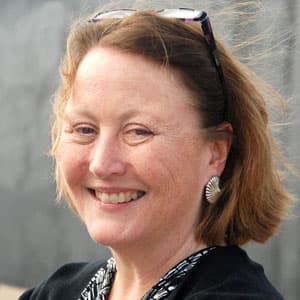Advertisement
Mass. Needs More College Graduates, Report Says
More students need to earn bachelor’s degrees if Massachusetts is to meet employers’ needs, state education officials say in a report released Wednesday.
The report — an annual update of the Department of Higher Education's Vision Project, its plan for improving the state's public colleges and universities -- says Massachusetts' college graduation rates — though rising -- are not keeping pace with the growing numbers of high-tech and other jobs that require a four-year degree.
"Not enough students are going into higher education at the rates we need them to do," Carlos Santiago, the state's higher education commissioner, said in a phone interview Tuesday. "We're seeing, really, shortages of highly talented, educated workers, degree-holding workers, in a variety of fields," particularly in tech and health care.
"When you look at some of the occupational groups," Santiago said, "it does look more precarious than we had even anticipated."
The report notes that it's not just a question of getting more students to sign up for — and complete — a four-year degree. There's also not enough capacity in some high-demand programs, including computer science and nursing.
Already, nearly two-thirds of online job postings in the state now say they require at least a bachelor’s degree, the report says, and Massachusetts could face a shortfall of as many as 52,000 bachelor's degree holders by 2025, the report projects.
The report expresses particular concern about students of color, who continue to lag behind their white classmates. The gap in reading and math scores between students of color and their white peers is wider here than the national average, and the gap in the numbers of students who must take remedial courses in community college has worsened for black students and stayed flat for Latinos. While the gap in six-year college graduation rates between students of color and whites has improved, it remains in the double digits.
To address the achievement gaps, the report recommends increasing support and expanding opportunities for low-income male students, particularly students of color.
Advertisement
"We know that historically these groups have not been well served by either K through 12 or higher education," Santiago said. Noting that he's been asked why the state should pursue and support such students when "it's expensive," he said, "My answer to that was that if we can ensure the success of these students ... it will help everyone."
This year’s report narrows the focus of the Vision Project from an original list of seven priorities to just three: to increase high school students’ readiness for college and boost college enrollment; to increase the percentage of students who go on to attain a degree; and to narrow the achievement gap between whites and people of color. All three goals, the report says, are “aligned” with future workplace needs, another of the original seven goals.
"That doesn't mean that the seven goals are going away," Santiago said. But he said the department concluded it was important to emphasize just three goals because "part of the reason we haven't made as much progress as we would have liked is that it's expensive for us as an agency to organize the campuses around all of these goals."
What’s now less emphasized are the goals of improving student assessments, teaching students to be good citizens and building the research strength of Massachusetts’ public institutions (although research remains the primary goal of the University of Massachusetts, the public system's top tier).
Some faculty members and administrators had criticized the project’s original focus on college as career preparation rather than a more general education, which is why the goal of citizen education was added.
With this year’s report, however, the emphasis seems to shift toward career preparation. Santiago said that doesn't mean that public campuses will become mere job-training centers.
"I think the worst thing we could do is create degrees focused exclusively on workforce deliverables so that the student's lifelong career of learning ends," he said. If anything, he said, he'd like to make it easier for students with certificates or associate's degrees to transfer to four-year campuses if they want to, as the recently announced Commonwealth Commitment is designed to support.
It's not a question of either training for jobs or providing a well rounded education, Santiago said.
"I don't really believe in that dichotomy between workforce and the liberal arts tradition," he said. "I think that's a false dichotomy."
When he asks employers what they're looking for, he said, "they'll typically say, 'Look, I want students who can have critical thinking, who can express themselves well in writing, who can communicate well, who can work in groups.' You know, those are skills that I would view as liberal-arts skills, and it's important that those skills are developed."
At the same time, he said, both students and their parents want assurances that their education will help them find jobs. In Massachusetts, at least, more and more of those jobs will require a four-year degree.
